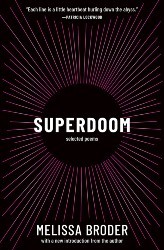Jessica Jacobs’s third full-length poetry collection, unalone, opens with this observation about fences: “the world / is lousy with them. More than we can count.” Fences are a form of separation for people yearning for connection. In unalone, Jacobs offers chiseled, luminous poems as extended meditations on reading the Torah in conversation with contemporary life. The twelve parshiot of Genesis form the spine of the collection; twelve sections respond to the stories of Methuselah, Sarai, Hagar, Jacob, and others. In the first poem, Jacobs foregrounds her lively engagements with these stories. She challenges the metaphor of building a fence around the Torah and pivots instead to the image of a gate: “Let us honor what we love / by taking it in.”
unalone is a collection of love poems — Jacobs describes her love for intimate partners, friends and comrades, other Jews, and the Torah. Love in Jacobs’s hands is capacious and complex. She demonstrates her prowess with couplets, for instance, in the ghazal “Sing, O Barren One, Who Did Not Bear a Child,” which opens with these lines:
Her hand sharp in the small of Hagar’s back, Sarai, that barren
punster, pimped her handmaid to her husband, saying, “As I am barren
please ‘consort’ … with her.”
In an earlier poem, Jacobs deploys couplets to both underscore human intimacy with dogs and explore the term “mazel tov.” Jacobs layers multiple images to create a rich tapestry of meaning. Midway through “Mazel Tov,” she writes:
and sometimes, like Abraham, you must
leave the place that grew you to grow
toward better stars. In the house, my love
is sleeping. Along the fence-top, a procession
of possums reminds that even in darkness
there are those who can see.
Jacobs’s close observations of the natural world, combined with stories from the Torah and her own lived experience, demonstrate her ability to weave and reveal profound meaning in the world.
unalone also has poems that innovate and experiment with form. These poems are particularly daring and exciting. “In the Shadow of Babel” is a long, ambitious poem in which Jacobs reflects on differences across generations. She describes herself as someone “who runs with no one chasing her” and reflects on the polyglots of her past and the “murders I know only from the archive.” She observes, “Monoglot me, struggling to speak, to listen / to what, to who came before.” That struggle to speak and listen to the past results in poems that are fresh, deft, and assured.
Jacobs mobilizes a tangle of daily life, Jewish life, and Torah in her work. She displays an impressive amount of knowledge but always lets her stories shine, keeping them engaging and accessible. unalone is a bold and original collection from a poet in her full power.
Julie R. Enszer is the author of four poetry collections, including Avowed, and the editor of OutWrite: The Speeches that Shaped LGBTQ Literary Culture, Fire-Rimmed Eden: Selected Poems by Lynn Lonidier, The Complete Works of Pat Parker, and Sister Love: The Letters of Audre Lorde and Pat Parker 1974 – 1989. Enszer edits and publishes Sinister Wisdom, a multicultural lesbian literary and art journal. You can read more of her work at www.JulieREnszer.com.




